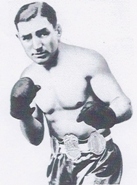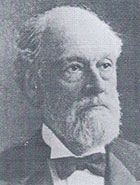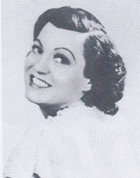Hall of Fame Inductees
See our latest inductees listed below! Click on any inductee's name to learn more.
We apologize for the poor quality of some older inductee photographs. We are working to correct this as soon as possible.
Interested in submitting a nomination? Please click here to learn how »


Louis "Kid" Kaplan (Sports)
1902 – 1970
The life and career of Louis “Kid” Kaplan will long be remembered as a most incredible, but true, story of a man’s courage, determination and endurance. He achieved what “Dinny” McMahon, his manager and close friend of fifty years, called “Kid Kaplan’s most memorable day” on January 2, 1925. That night, at the old Madison Square Garden in New York City, the “Meriden Buzz Saw” knocked out Danny Kramer in the ninth round to become boxing’s featherweight champion of the world.
“Kid” Kaplan, born in Russia, was one of eight children. His struggle for survival began at an early age after only five grades of schooling. He worked at many jobs in Meriden and developed an interest in boxing at the age of twelve to begin a career that was to endure for twenty years until he retired from the ring in 1933.
This veritable punching whirlwind was widely acclaimed for his tremendous stamina, grit and determination. From 1921 to 1933 he fought over one hundred matches during boxing’s golden age when prize fighters fought often.
“Kid” Kaplan’s life and career kindled a spirit of good feeling, of respect and pride that is without parallel in Meriden and here is where it all began.


Orville Hitchcock Platt (Benefactors)
1827 – 1905
Orville Hitchcock Platt was born in 1827 and grew to manhood at his family’s farm in Washington, Connecticut. In 1851, at the age of twenty-four, he and his new bride settled in Meriden, where he began the practice of law. He soon became involved in politics and served as clerk of the State Senate, Secretary of State and for eight years, in the State Legislature. In 1879 the State Legislature elected him to represent Connecticut in the United States Senate, where he served for twenty-six years until he died in office in 1905.
Senator Platt was noted for his modest bearing, serious attention to responsibility and possession of logic and reasoning which earned him the confidence and respect of his colleagues as each year he grew in effective service. He served on and was chairman of many Senate committees. He was credited as the author of the famous Platt Amendment which outlined the conditions of the Cuban settlement after the cessation of the Spanish-American War. His dedicated work during fourteen years of service on the Committee of Indian Affairs was responsible for the naming, in his honor, of Platt National Park in an area of southern Oklahoma.
Senator Platt died in the town of his birth in the area he loved so well and was interred at the village cemetery at Washington, Connecticut. He maintained his residence in Meriden for fifty-four years and his family lived in his home on Lincoln St. after his death. A biography by Louis A. Coolidge is titled “An Old Fashioned Senator, Orville H. Platt, of Connecticut.”


Rosa Ponselle (Art)
1897 – 1981
Madame Ponselle, one of the leading dramatic sopranos of the 20th century, was born Rosa Ponzillo in Meriden, Connecticut. Her father, who had immigrated from Caserta, Italy, was a baker and owner of a grocery store in the house in which the family lived for many years on Springdale Avenue. She began her musical education by studying the piano and sang as she played the piano at a local silent movie theatre. She received encouragement from her mother, Maddalena, and piano training from the organist of Our Lady of Mount Carmel Church, where she sang in the choir.
Her older sister Carmela, an established vaudevillian with a beautiful singing voice, brought Rosa to New York City where they formed a sister act on the B. F. Keith Vaudeville Circuit. The great Enrico Caruso, who had heard her rich dramatic soprano voice, opened the door to her operatic career by arranging for her audition with the Metropolitan Opera Company which led to her debut with him in the role of Leonora in Verdi’s “La Forza del destino.” Rosa named her Maryland home “Villa Pace,” inspired by words in the aria “Pace, Pace, Mio Dio” which she sang as Leonora.
Following a career spanning twenty years, Madame Ponselle retired after her last performance in “Carmen” in April, 1937 with her golden voice intact. During her retirement at “Villa Pace” she gave generously of her time to the encouragement and development of young musicians and singers in the Baltimore area. Her home is now the Rosa Ponselle Museum. A provision in her will established a fund to provide for a musically oriented project for the education and benefit of the people of Meriden, Connecticut. A biography of her life is entitled “Ponselle.”



